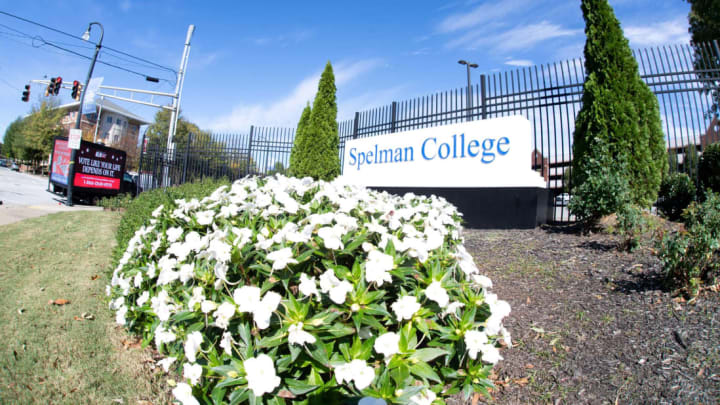The COVID-19 pandemic has placed financial strain on institutions of higher education, and historically Black colleges and universities have been hit especially hard. For decades, HBCUs have been underfunded due to systemic racism and inequity in public funding. As the Associated Press reports, a new grant aims to give HBCUs a boost at a time when it's sorely needed.
The National Trust’s African American Cultural Heritage Action Fund will award more than $650,000 in grant money to eight U.S. schools founded to primarily educate Black students. Those institutions include Benedict College in Columbia, South Carolina; Jackson State University in Jackson, Mississippi; Lane College in Jackson, Tennessee; Morgan State University in Baltimore, Maryland; Philander Smith College in Little Rock, Arkansas; Spelman College in Atlanta, Georgia; Stillman College in Tuscaloosa, Alabama; and Tuskegee University in Tuskegee, Alabama.
The grant money will be used to preserve the physical buildings that make up these campuses. Years of underfunding have led to many structures falling into disrepair. At Benedict College, leaky windows have resulted in a “host of structural problems" at Duckett Hall, president and CEO Dr. Roslyn Clark Artis tells AP. The college plans to use the grant to restore the nearly 100-year-old building.
These restoration projects will also be learning opportunities for students at the colleges. As part of their preservation efforts, each HBCU will recruit one student to help execute the plans. Brent Leggs, the National Trust’s African American Cultural Heritage Action Fund's executive director, told AP that this will help “cultivate the next generation of Black professionals in historic preservation."
The $650,000 grant for HBCUs is just one example of the National Trust supporting the Black community. The funding is part of a larger $25 million campaign from the organization to preserve Black culture and history launched in 2017.
[h/t Market Watch]
